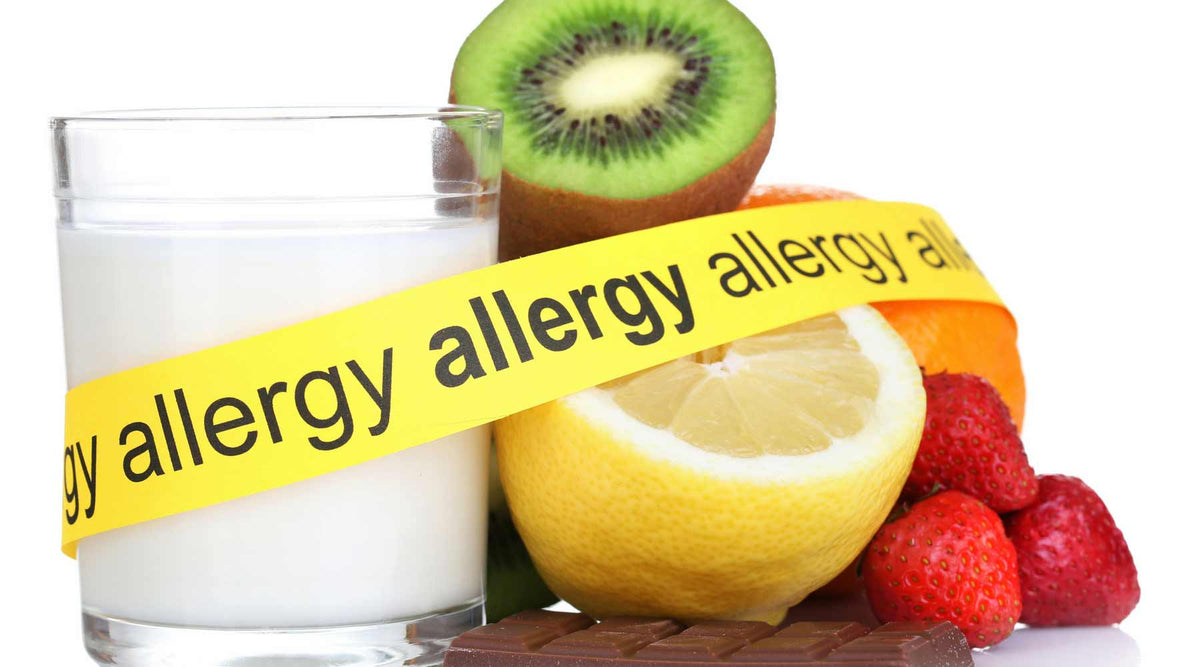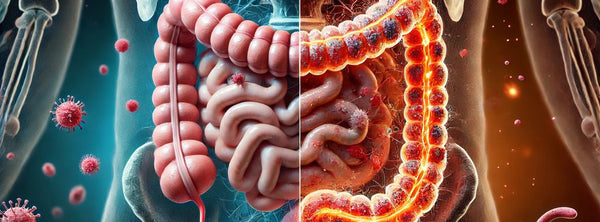
Allergies are a growing concern and are becoming more common in our society. An allergy occurs when your body comes into contact with a substance that it is incompatible with. This could be a food or liquid that you’ve consumed, a substance that you have inhaled, a material that has come in contact with your skin, or by a condition called Leaky Gut Syndrome (damage to the mucous membrane lining of your digestive tract).
What you eat and drink are by far the most common sources of allergies that will affect you and the old saying “one man’s food is another man’s poison” is still as accurate today as it was back then.
How do allergies occur?
When a substance that you’re allergic to comes in contact with your immune system a series of events occur. Firstly the immune system produces cells called antibodies and their role is to remove or neutralise the allergenic substances (antigens) from your body. The presence of these antigens and the increased number of circulating antibodies present in your blood cause another immune cell (mast cell) to rupture resulting in a massive release of histamine.
This increase in histamine levels then causes an inflammatory response anywhere in your body (generally where there is already a weakness) resulting in the symptoms of an allergy. Inflammation not only causes allergies but is the main driving force behind 98% of all diseases such as heart disease, cancer, diabetes and any illness ending in “itis” such as arthritis, pancreatitis or diverticulitis.
How would I know if I was allergic to something?
Allergies affect every person differently and generally affect a part of your body where there is a weakness. There are some classic signs and symptoms that indicate you may be experiencing an allergic reaction. A few common signs are;
| Nausea and/or vomiting | Arthritis, joint or muscle pain |
| Abdominal pain, cramps or colic | Mood swings and/or depression |
| Diarrhoea or constipation | Sleep disorders |
| Abdominal bloating and/or flatulence | Sinus or hay fever |
| Skin rashes / itchy skin | Itchy or runny nose |
| Headaches or migraines | Asthma |
| Indigestion | Premenstrual tension |
| Fatigue | Swelling of lips, tongue, or mouth |
| ADD or ADHD | Itching or tightness in the throat |
| Facial flushing | Irritability or explosive anger |
How long before an allergic reaction occurs?
Your allergic reaction may occur in a very short period of time ranging from a few minutes to hours or as a delayed reaction taking place days later after your initial contact to the allergenic substance occurred. For example an allergy to dairy may take up to 5 days to show up as a sign or symptom in your body which makes it very difficult for you to identify what is causing your reaction.
What treatments are available for my allergies?
In our clinic we recommend and use AllerCare Herbal Tonic which contains potent anti allergenic and immune stimulating herbs. We also recommend in conjunction with AllerCare the high potency probiotic Multibac 10. Our AllerSupport Pack contains both of these beneficial products.



